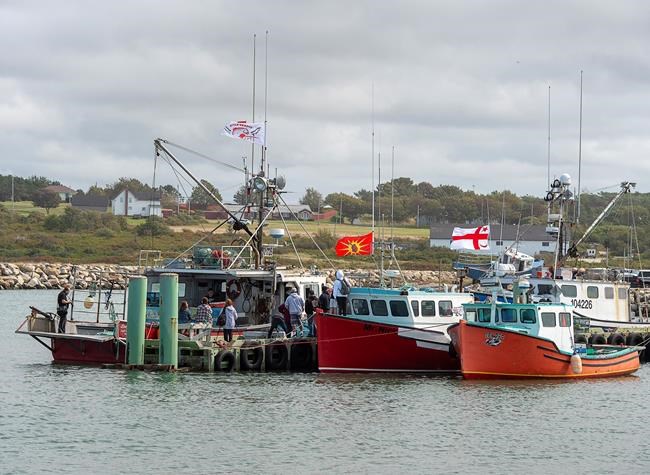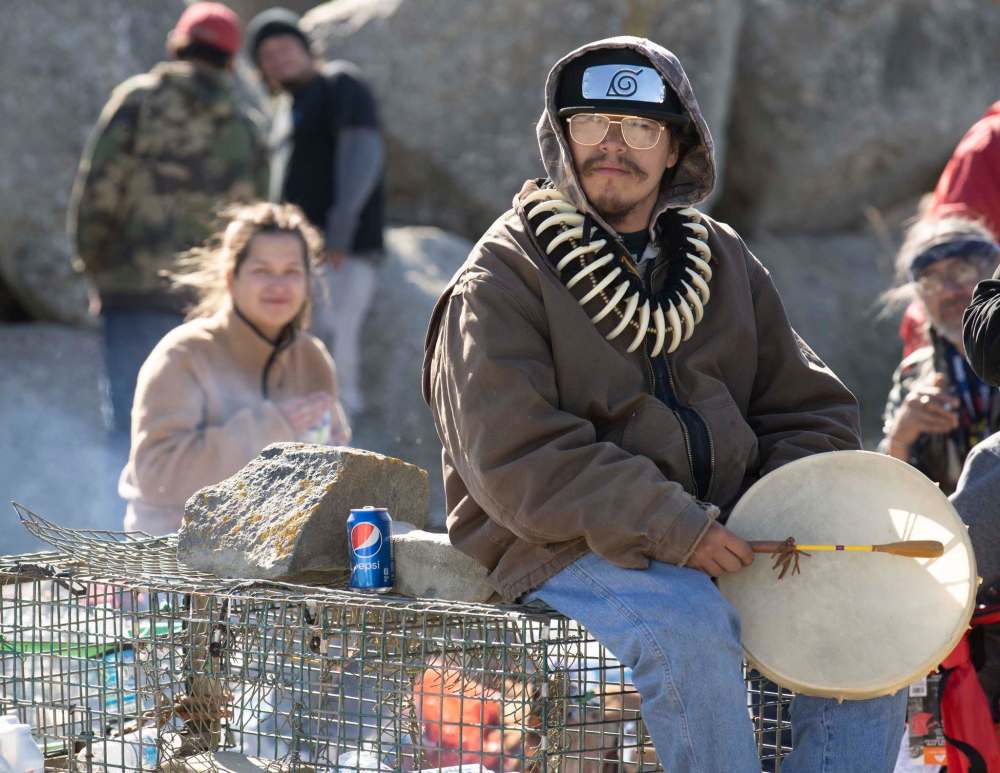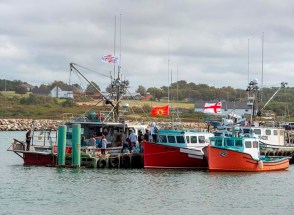First Nations respect the rule of law; too bad many Canadians don’t
Read this article for free:
or
Already have an account? Log in here »
To continue reading, please subscribe:
Monthly Digital Subscription
$19 $0 for the first 4 weeks*
- Enjoy unlimited reading on winnipegfreepress.com
- Read the E-Edition, our digital replica newspaper
- Access News Break, our award-winning app
- Play interactive puzzles
*No charge for four weeks then billed as $19 plus GST every four weeks. Offer only available to new and qualified returning subscribers. Cancel any time.
Read unlimited articles for free today:
or
Already have an account? Log in here »
Hey there, time traveller!
This article was published 20/09/2020 (1559 days ago), so information in it may no longer be current.
Last Friday, the Assembly of Nova Scotia Mi’kmaw Chiefs declared a state of emergency.
“This decision is in response to the violence occurring over Mi’kmaq fisheries across the province,” the chiefs wrote. “The Assembly will be co-ordinating assistance and support across organizations and service providers in order to protect the safety and security of Mi’kmaq.”
Last week and into this week, Mi’kmaw have been harassed, threatened and sabotaged by Canadian fishers predominantly at the Saulnierville wharf in southern Nova Scotia (where Mi’kmaw dock their fishing boats).
The fishers are angry that the Mi’kmaw have a right to fish “out of season” due to the 1760-61 treaty they share with the Crown — a right recognized 21 years ago by the Supreme Court of Canada.
At issue are approximately 350 lobster traps — which Mi’kmaw from nearby Sipekne’katik First Nation say gives them a barely livable income. More traps would be set but Canada has used “conservation” as an argument to limit Mi’kmaw rights and impose a quota.
It’s a sham argument. Commercial Nova Scotia fishermen are allowed more than 325,000 traps during fishing season — and most companies break the law and overfish.
Any issues with protecting lobster stocks belongs solely in Canadian hands, not to mention that the Department of Fisheries published a report in 2019 stating, “Lobster stocks across the Maritimes Region remain very healthy.”
Still, the Mi’kmaw are targeted over their rights.
On Sunday, Sipekne’katik Chief Mike Sack informed media that boats were vandalized and Canadian fish harvesters cut the lines on his community’s lobster traps. In St. Mary’s Bay, Mi’kmaw fishing boats were blocked from travelling, shot at by flare guns and surrounded by dozens of non-Indigenous commercial fishing boats while checking traps.

RCMP, in the meantime, have done next to nothing in response to hundreds of incidents. Since the conflict began, only two people have been charged.
As a result, Mi’kmaw community members have created a checkstop into the wharf to reduce the violence.
The conflict has now attracted the attention of federal Fisheries Minister Bernadette Jordan, who spoke with Sack Saturday evening, a meeting that did not produce a solution.
So, if Canadians won’t respect the “rule of law,” why the heck would anyone else?
The “rule of law” is universally loved by Canadians; politicians in particular.
It’s evoked every time there is an Indigenous “protest,” march or action that expresses Indigenous and treaty rights and disrupts the comfort of Canadians.
The right thing to do is for Canada to recognize the Supreme Court’s affirmation of Mi’kmaw rights and territories and arrest everyone perpetuating violence.
Premier Brian Pallister criticized Indigenous activists last February as forming “illegal blockades” across Canada in support of the Wet’suwet’en hereditary chiefs, “including one right here in Manitoba.” Promising to remove them by force, Pallister said: “We respect the rights of protesters…. But laws need to be applied.”
Alberta Premier Jason Kenney loves using the “rule of law” when defending Alberta’s oil and gas development projects. It’s the sole reason he introduced and passed Bill 1, the Critical Infrastructure Defence Act.
Bill 1, according to Kenney, will “strengthen penalties against those who would lawlessly trespass or jeopardize public safety by seeking to block critical public infrastructure, including roadways, railways and other important infrastructure.”
In other words, any project dependent on Indigenous territories.
Prime Minister Justin Trudeau also uses the “rule of law” argument when it comes to Indigenous peoples expressing their rights. Speaking of Indigenous protests, he has said Canada is “a country of the rule of law and we need to make sure those laws are respected.”

In the case of the Mi’kmaw, the real problem is that they are the only one respecting the law.
Not Canadians. Not RCMP. Not politicians. Just them.
At the same time, they are expressing Mi’kmaw law over their lands, waters and way of life — things they have never surrendered, agreed to share or stopped using.
The Mi’kmaw have found a path to use both Canadian law and their own. If it weren’t for the fact Canadians are so lawless, I might even call this reconciliation.
The problem, of course, is that people’s lives are on the line.
The Assembly of Nova Scotia Mi’kmaw Chiefs announced Monday they are looking at extending their state of emergency and expanding it “to include Cape Breton Island.”
This means more blockades, standoffs and, likely, more violence. Unlikely from Mi’kmaw hands.

The right thing to do is for Canada to recognize the Supreme Court’s affirmation of Mi’kmaw rights and territories and arrest everyone perpetuating violence.
You know, follow the rule of law.
But I guess if that was gonna happen it would have by now.
So, the Native Women’s Association of Canada and the Assembly of Manitoba Chiefs both released statements Monday offering unequivocal support for the Mi’kmaw. Insert national solidarity actions next.
How do you feel about an economic slowdown during the current slowdown, Canada?
Blame Canadian lawlessness.
Not the people following the law.
niigaan.sinclair@freepress.mb.ca


Niigaan Sinclair
Columnist
Niigaan Sinclair is Anishinaabe and is a columnist at the Winnipeg Free Press.
Our newsroom depends on a growing audience of readers to power our journalism. If you are not a paid reader, please consider becoming a subscriber.
Our newsroom depends on its audience of readers to power our journalism. Thank you for your support.
History
Updated on Monday, September 21, 2020 9:20 PM CDT: Fixes multiple typos.











